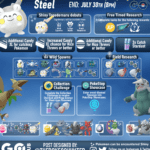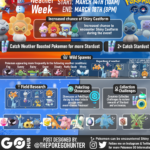Research to the Max!
Research to the Max!
Introduction to Effective Research
Research can often feel like a daunting mountain to climb, right? But fear not! When done correctly, research can be an exhilarating journey. Whether you’re a student, a professional, or just a curious mind, understanding how to conduct effective research is crucial. So, let’s dive into this world of discovery and learn how to take your research skills to the max!
Understanding the Research Process
Alright, let’s break down the research process into manageable steps. It’s like following a recipe; if you follow each step carefully, you’ll end up with a delicious end result. First up, you need to identify your research topic. Easy enough, right? But what comes next? Well, let’s find out.
Identifying Your Research Topic
Finding your topic is like finding a needle in a haystack sometimes. You want something that not only piques your interest but can also contribute to existing knowledge. Think about what fascinates you. Do you want to explore the effects of social media on mental health? Or perhaps the impact of climate change on biodiversity? Whatever it is, make sure it’s something you’re passionate about!
Setting Research Objectives
Once you’ve locked in your topic, it’s time to set some objectives. What do you want to achieve with your research? Are you aiming to prove a hypothesis, or are you looking to gain a deeper understanding of a complex issue? Clear objectives will guide your research and keep you focused.
Types of Research
Now that we have our topic and objectives, let’s discuss the types of research you can conduct. There are two main categories: qualitative and quantitative. Each serves different purposes and can be used in various contexts. So, which one should you choose? Let’s break it down!
Qualitative vs. Quantitative Research
When to Use Qualitative Research
Qualitative research is all about exploring concepts and experiences. If you’re aiming to understand people’s feelings, opinions, or motivations, this is your go-to method. Think interviews, focus groups, or open-ended surveys—anything that allows for rich, detailed responses.
When to Use Quantitative Research
On the flip side, if you’re looking to measure something and need hard data, quantitative research is your best friend. This could involve surveys with closed-ended questions or experiments that yield numerical results. Want to know how many people prefer coffee over tea? This is how you find out.
Research Methods
Now, let’s talk about the different research methods you can employ. Each method has its strengths and weaknesses, depending on your research objectives. Here’s a quick rundown of some popular methods.
Surveys and Questionnaires
Surveys and questionnaires can be super effective for gathering data from a large group. They can be done online or on paper, and they allow you to ask specific questions to get the information you need. Just remember to keep your questions clear and concise to avoid confusion.
Interviews and Focus Groups
If you want a more in-depth understanding, consider conducting interviews or focus groups. These methods provide valuable insights that numbers alone can’t convey. Plus, you get to engage directly with participants—how cool is that?
Literature Review
Don’t forget the literature review! This is where you dig into existing research to find what’s already out there. It helps you build a foundation for your own work. It’s like checking out what everyone else is saying before you throw your hat into the ring.
Finding Reliable Sources
Now, let’s tackle the big question: where do you find reliable sources for your research? With so much information out there, it can be overwhelming. But don’t worry; we’ve got some tips to help you sift through the noise and find quality content.
Academic Journals
Academic journals are gold mines for research! They contain peer-reviewed articles written by experts in various fields. Make sure to use databases like JSTOR or Google Scholar to access these treasures. They’ll give you the credibility you’re looking for.
Books and E-books
Books, both physical and digital, are another fantastic resource. Look for books written by reputable authors in your field. They often provide comprehensive insights and can be used to support your arguments or findings.
Websites and Online Databases
While the web can be a bit of a wild west, there are reliable websites and online databases out there. Look for government websites, educational institutions, and reputable organizations. Always check the credibility of the source before citing it!
Organizing Your Research
Once you’ve gathered your information, it’s time to organize it. A chaotic research process can lead to confusion and frustration, so let’s get our ducks in a row! Here are some strategies to help you out.
Note-taking Strategies
Good note-taking is an art! Whether you prefer traditional pen-and-paper or digital tools, find a method that works for you. Consider using bullet points, color coding, or mind maps to keep your notes organized and easy to navigate.
Using Research Management Tools
There are plenty of tools out there to help manage your research. Programs like Zotero and EndNote can help you keep track of your sources and format your citations. Embrace technology to save time and effort!
Writing Your Research Paper
Now comes the fun part: writing your research paper! This is where you get to share your findings with the world. Let’s break it down into manageable chunks.
Creating an Outline
Before diving into writing, create an outline. This will be your roadmap, guiding you through the structure of your paper. Start with your introduction, followed by your main points, and finish with your conclusion. Having a solid outline makes the writing process smoother.
Drafting and Revising Your Paper
Once you have your outline, it’s time to start drafting! Don’t worry about perfection on the first go. Just get your ideas down, and then you can revise and polish later. Remember, writing is rewriting!
Citing Your Sources
Citing your sources is crucial in research. It gives credit where it’s due and shows that you’ve done your homework. But how do you do it correctly? Let’s explore!
Understanding Citation Styles
There are various citation styles out there, such as APA, MLA, and Chicago. Each has its own rules for how to format citations and references. Make sure you know which style you’re required to use and stick to it!
Avoiding Plagiarism
Plagiarism is a big no-no in research. Always make sure to properly attribute ideas that aren’t your own. When in doubt, cite! It’s better to be safe than sorry.
Conclusion
Research is a powerful tool that can lead to new discoveries and insights. By following a structured process—from identifying your topic to writing and citing your paper—you can maximize your research efforts. Embrace the journey, and who knows what you might uncover!
FAQs about Research
What is the first step in conducting research?
The first step is to identify your research topic. Choose something you’re passionate about and that has enough existing information to explore.
How do I find reliable sources?
Look for academic journals, books by reputable authors, and credible websites. Always verify the credibility of your sources.
What is the difference between qualitative and quantitative research?
Qualitative research focuses on understanding experiences and concepts, while quantitative research deals with numerical data and measurable outcomes.
How important is citing sources?
Citing sources is crucial as it gives credit to original authors, strengthens your arguments, and helps avoid plagiarism.
Can I use online sources for academic research?
Yes, but ensure they are from reputable websites, such as educational institutions or government sites. Always verify the information.




























Post Comment